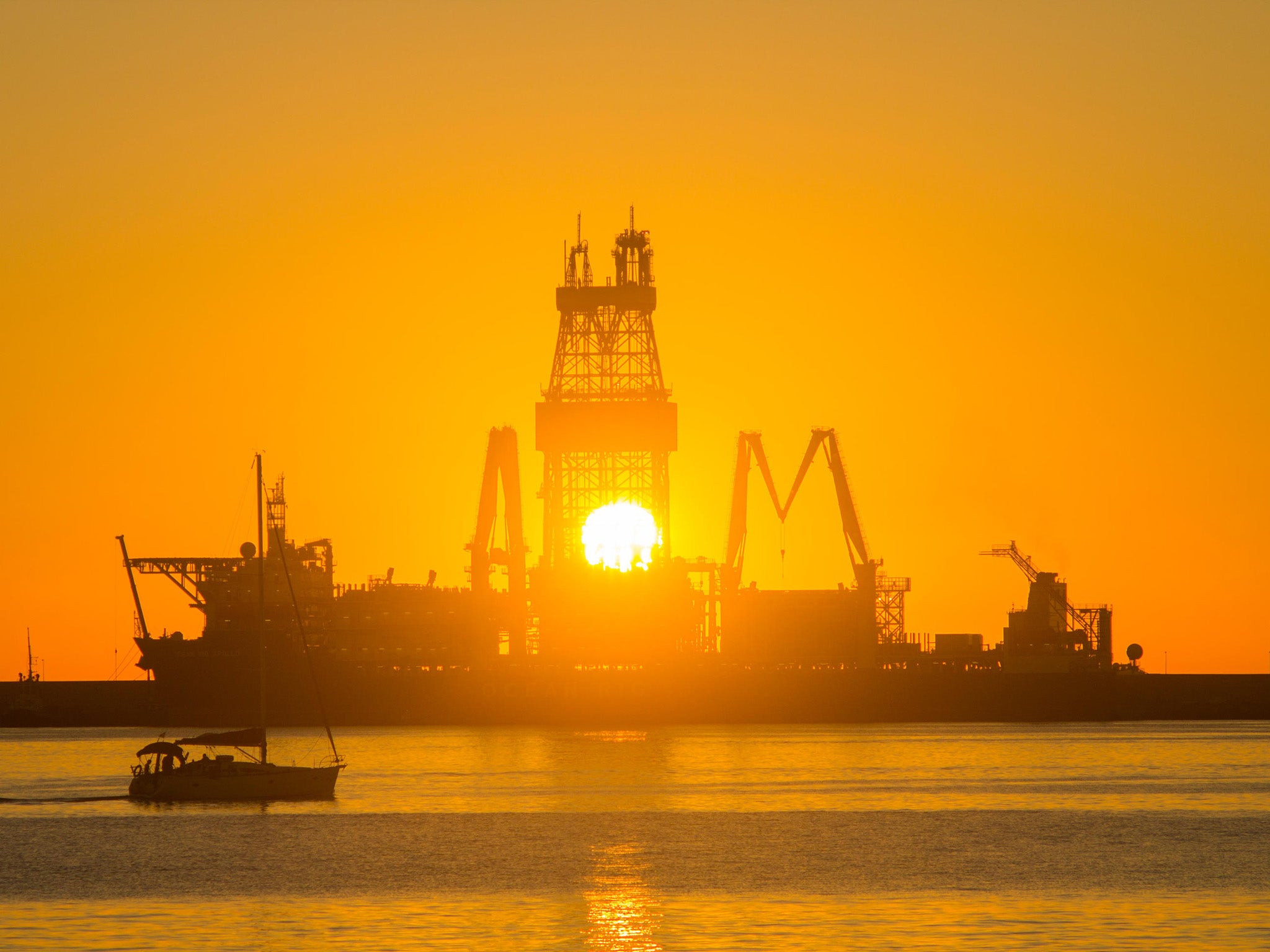Trump's oil and gas leases may produce more emissions than EU does in a year, report finds
US president offers more public land for oil and gas extraction than any administration in history

Your support helps us to tell the story
From reproductive rights to climate change to Big Tech, The Independent is on the ground when the story is developing. Whether it's investigating the financials of Elon Musk's pro-Trump PAC or producing our latest documentary, 'The A Word', which shines a light on the American women fighting for reproductive rights, we know how important it is to parse out the facts from the messaging.
At such a critical moment in US history, we need reporters on the ground. Your donation allows us to keep sending journalists to speak to both sides of the story.
The Independent is trusted by Americans across the entire political spectrum. And unlike many other quality news outlets, we choose not to lock Americans out of our reporting and analysis with paywalls. We believe quality journalism should be available to everyone, paid for by those who can afford it.
Your support makes all the difference.Donald Trump’s administration may produce more emissions from oil and gas leases on public land and waters than the EU contributes in an entire year, according to a new report.
The US government has offered 378 million acres of public land for oil and gas leases since Trump became president to April this year, according to a report by The Wilderness Society. This is more than any previous administration.
This could result in the emission of between 854 million and 4.7 billion tonnes of carbon dioxide, depending on how much companies choose to pursue. EU member states produce around 4 billion metric tonnes of carbon dioxide a year.
The US Department of the Interior (DOI) is responsible for making decisions about how public lands are managed. According to the report, the DOI has overhauled existing policies to make it cheaper and easier for fossil fuel companies to hold control of public lands.
The government does not track emissions from these areas and has not set reduction goals.
At this rate emissions from fossil fuels are projected to fall well short of the reduction targets suggested by leading climate scientists. The report says these leasing decisions are having “significant and long-term ramifications for our climate and our ability to stave off the worst impacts of global warming”.
Chase Huntley, energy and climate change program director at The Wilderness Society said: “Thanks to this administration’s mismanagement of federal energy resources, our shared public lands and waters are aggravating the global climate crisis when they should be a part of the solution.
“Our elected leaders and agency officials have a number of tools at their disposal to make an immediate impact on our nation’s climate emissions, including drastically reducing needless methane pollution, eliminating production subsidies and requiring developers to mitigate climate impacts.”
The US government is responsible for more than 2.4 billion acres of land which contain resources like coal, crude oil and natural gas. In 2017 public land produced 42 per cent of the country’s coal and 24 per cent of US oil.
According to the report the current administration is looking to strip Obama-era guidelines that mean federal agencies have to quantify greenhouse emissions and consider the climate impacts of any decision.
“Continuing to lease public lands and waters for oil and gas development without considering the climate impacts will make certain that we miss our emission reduction targets,” the report said.
“The management of these lands and mineral resources is entirely in the hands of our elected leaders and agency officials.
“As the largest single land holder and energy asset manager in the nation, the federal government must ensure our public lands and waters are managed for climate progress.”
Many candidates looking to run in the 2020 presidential election including Elizabeth Warren, Bernie Sanders and Joe Biden have said they would ban new drilling on public lands.
Join our commenting forum
Join thought-provoking conversations, follow other Independent readers and see their replies
Comments